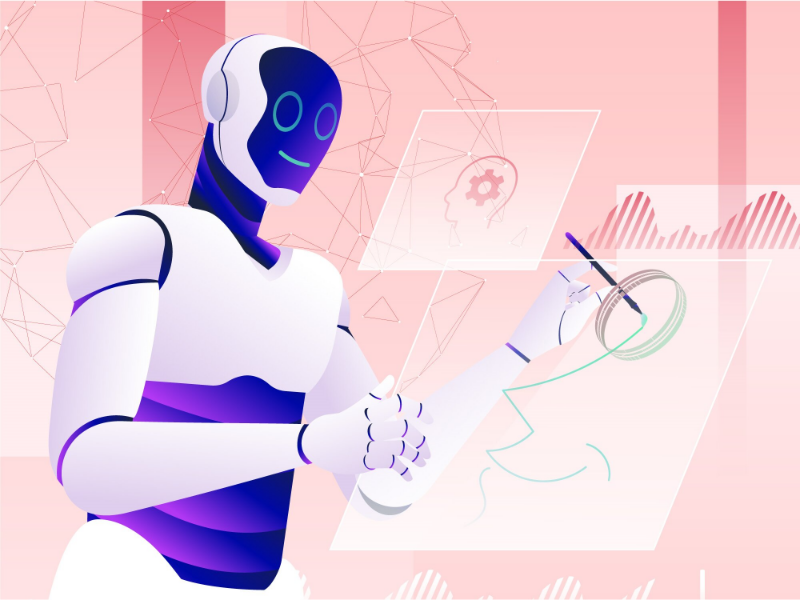- Global tech giants invest billions in AI and machine learning research.
- AI and machine learning applications revolutionise various industries, from healthcare to finance.
In the bustling corridors of Silicon Valley, the hum of innovation is palpable. It’s a place where dreams are turned into reality, and one of the most significant dreams being realised today is that of artificial intelligence (AI) and machine learning (ML). As the world grapples with unprecedented challenges, these technologies stand at the forefront, promising solutions that were once the stuff of science fiction.
1. Transforming industries
AI and ML are not just buzzwords; they are transformative forces reshaping industries across the globe. From healthcare and finance to retail and transportation, these technologies are driving efficiency, innovation, and growth.
- Healthcare: AI’s ability to analyse vast amounts of data swiftly and accurately is revolutionising healthcare. Predictive analytics help in early disease detection, personalised treatment plans, and efficient management of medical records. For example, Google’s DeepMind has developed an AI system that can diagnose eye diseases as accurately as world-leading doctors.
- Finance: In the financial sector, AI algorithms are used for fraud detection, risk management, and personalised banking services. Companies like JPMorgan Chase are using AI to review documents in seconds, a task that previously took legal teams thousands of hours.
- Retail: AI-driven analytics are transforming the retail industry by enhancing customer experiences, optimising supply chains, and personalising marketing strategies. Amazon’s AI recommendation engine is a prime example of how machine learning can boost sales and customer satisfaction.
2. Enhancing everyday life
Beyond industry applications, AI and ML are increasingly becoming integral to our daily lives. Smart assistants like Siri and Alexa, recommendation systems on Netflix and Spotify, and navigation apps like Google Maps—all these conveniences are powered by AI.
- Smart homes: AI-driven devices are making homes smarter and more energy-efficient. From thermostats that learn your preferences to security systems that recognise faces, AI is enhancing comfort and safety.
- Transportation: Self-driving cars, powered by AI, promise to revolutionise the way we commute, potentially reducing accidents and traffic congestion. Companies like Tesla are at the forefront of this revolution, making significant strides in autonomous vehicle technology.
3. Overcoming challenges
Despite the immense potential, the integration of AI and ML is not without challenges. Ethical considerations, data privacy concerns, and the potential for job displacement are critical issues that need addressing.
- Ethics and bias: AI systems can inherit biases from their training data, leading to unfair outcomes. It’s essential to develop robust frameworks to ensure fairness and transparency in AI applications.
- Privacy: The massive data requirements of AI systems pose significant privacy concerns. Protecting user data while harnessing its potential is a delicate balance that needs careful regulation.
Also read: Brazil orders Meta to stop training its AI on personal data
Also read: AI coding startup Magic seeks $1.5B valuation in new funding
Additional insights
AI and ML are not just future technologies; they are here and now, making significant impacts. For instance, during the COVID-19 pandemic, AI played a crucial role in predicting outbreaks, developing vaccines, and managing healthcare resources efficiently. Companies like Moderna used AI to accelerate vaccine development, reducing the time required to bring a vaccine to market from years to months.
A personal perspective
Reflecting on the profound impact of AI and ML, it’s hard not to feel a mix of awe and excitement. These technologies are not just transforming industries; they are redefining what it means to be human. The potential to alleviate suffering, enhance productivity, and create new opportunities is boundless. Yet, it’s also a call to action—to use this power responsibly, ethically, and inclusively.
AI and ML represent more than just technological advancements; they embody the human spirit’s relentless quest for knowledge and improvement. As we stand on the brink of this new era, the future looks not only bright but also beautifully complex and interconnected.
By embracing AI and ML, we are not just shaping a new technological landscape; we are redefining our collective future, one intelligent algorithm at a time.

